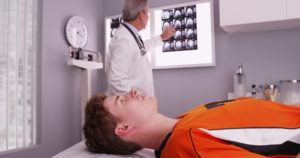Allergy Testing
Discovering an allergy can be inconvenient, and frightening depending on the severity or potential severity as you become more and more sensitized. Determining the cause of your allergic reactions is not always easy, as you could develop a sensitivity to something common that you wouldn’t even consider such as dust or unseen mold, or perhaps a food preservative.
There are a few ways specialists, like an allergist in Manassas, VA from Black & Kletz Allergy, can test for allergies, and the kind you decide to get will depend on what types of allergies you are being tested for. Keep in mind that all tests have pros and cons, as well as some risks, which is why it’s important to be tested by a specialist in case you have a more extreme reaction than expected.
Skin Testing
When you’re given a skin test, you will be able to have your results quickly (often within 20 minutes) and these tests often cost less than a blood test. Unfortunately, there are some medications that can affect the results. Your allergist will likely ask you to switch or stop medication if possible, before doing the test. The accuracy of the results also depends on the skill set of the person doing the test.
- Surface of the skin: A drop of each suspected allergen is pricked on the back of your forearm usually, and if you’re allergic to any of them, they should leave some redness or swelling
- Injection into the skin: A small amount of each substance can be injected into your skin if the allergist feels this will provide better results for you
Blood Testing
A blood allergy test requires just one needle prick, and medicine surprisingly does not affect the results. It does take longer to get your results, as they must be sent to a lab, and so this tends to cost more. There are also chances for false positives under some circumstances. You might consider a blood test if:
- You’re on a medication that will interfere with a skin test and you cannot stop taking it
- You have a severe skin condition
- Testing a strong allergen on your skin may cause a more severe response than usual
Allergy Diagnosis
Being tested for allergies cannot alone give you a fully accurate answer, and even choosing which substances to test must be done based on a few different pieces of information, including symptoms, medical history, age, hobbies, and occupational or environmental exposures.
Your results and your medical history must then be interpreted together by a professional to give you an accurate diagnosis. As well, these types of doctors are trained to not only eliminate your symptoms but they also work to improve your overall health in ways that work for your lifestyle and budget.

